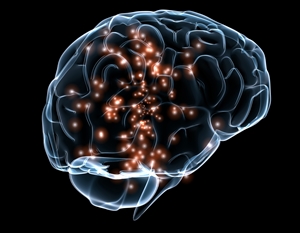28 May 2014. Massachusetts General Hospital in Boston and University of California in San Francisco are developing technologies to analyze brain activity and deliver near real-time neural stimulation therapies. The five-year project is funded by grants from Defense Advanced Research Projects Agency (DARPA) of $30 million and $26 million respectively to Mass. General and UC-San Francisco, as part of the government-wide Brain Research through Advancing Innovative Neurotechnologies (BRAIN) initiative announced in April 2013.
DARPA is looking for better therapies to treat neuro-psychological illnesses brought on by war and traumatic injuries suffered by military service members and veterans. A 2013 report says mental disorders are the leading cause of days spent in hospital beds and the second leading cause of medical encounters for U.S. active service members. The results of the project, however, are expected to have broad application in the civilian population.
Both Mass. General and UC-San Francisco will lead teams of neuroscientists, engineers, and physicians that research networks in the brain, develop computation models of brain activity, and design therapies for treating malfunctions in neural networks. A key understanding behind the project, notes DARPA’s program manager Justin Sanchez, is the brain’s plasticity, which allows it to trained or treated to restore normal activity after illness or injury.
“DARPA is looking for ways to characterize which regions come into play for different conditions—measured from brain networks down to the single neuron level, ” says Sanchez in an agency statement, “and develop therapeutic devices that can record activity, deliver targeted stimulation, and most importantly, automatically adjust therapy as the brain itself changes.”
Mass. General plans to look for common symptoms and syndromes of neurological and psychiatric disorders, and track the activity of neural networks down to the level of individually firing neurons. The team, which includes participants from MIT and Draper Laboratories, will develop deep-brain stimulation devices that monitor detailed neural activity across multiple regions and networks in the brain, and deliver therapies for post-traumatic stress, depression, drug addiction, and traumatic brain injuries.
UC-San Francisco’s team aims to identify brain signaling pathways associated with anxiety and depression, then design devices that provide precise stimulation to encourage development of alternative circuitry to bypass the malfunctioning connections. Working with UC-San Francisco are team members from UC Berkeley, Cornell University, and New York University, as well as Lawrence Livermore National Lab and the companies PositScience and Cortera Neurotechnologies.
Researchers at UC-San Francisco and UC-Berkeley tell more about the project in the following video.
- Alzheimer’s Brain Stimulation Implants Completed for Trial
- UC-San Francisco Launches Brain Disease Trial Registry
- Daiichi Sankyo, UCSF Partner on Neurodegenerative Disorders
- Neurotherapies Require Collaboration, Team Science, Big Data
- Transparent Skull Implant Devised for Laser Brain Treatments
* * *


 RSS - Posts
RSS - Posts
You must be logged in to post a comment.